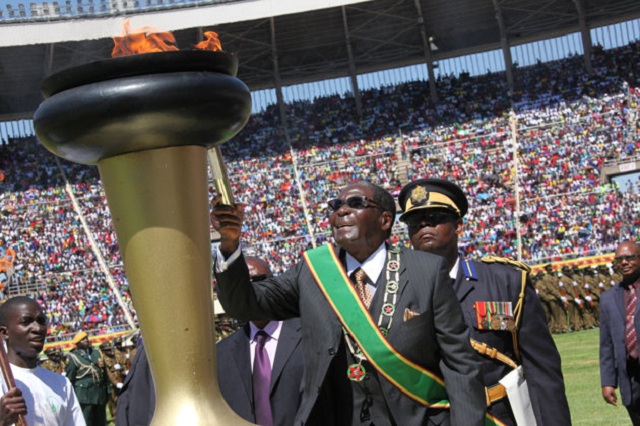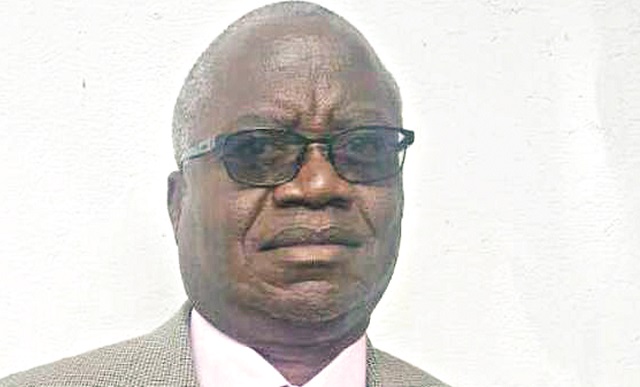Let’s celebrate with pride

Yoliswa Dube, Senior Features Reporter
PRESIDENT Mugabe will today light the Eternal Flame of Independence to deafening cheers and ululations from thousands of Zimbabweans.
Symbolically, this flame burns pure, true and strong as long as Zimbabwe enjoys the freedom that was bought by bloodshed during the country’s protracted liberation struggle.
The national flag, which consists of seven horizontal stripes of green, yellow, red and black with a white triangle containing a red five-pointed star with a Zimbabwe Bird flies high at the summit of a pole.
The design of the Zimbabwean flag was adopted on April 18, 1980, the day we celebrate today, when Zimbabwe won its independence from British colonisers.
The green on the flag represents the country’s vegetation and land resources, the yellow signifies the country’s mineral wealth, the red symbolises the blood spilt during the liberation struggle while black epitomises the black majority.
The Zimbabwe Bird is the national emblem of the country while the white triangle stands for peace and the red star stands for internationalism.
Thirty-seven years down the line, Zimbabwe still freely raises its flag with pride.
Independence Day grants us the opportunity to reflect on our achievements, assess the current challenges facing our nation and chart the way forward.
Zimbabweans must never take this day for granted as Western powers still relentlessly and frantically seek to reassert their imperialist grip on Zimbabwe and other African countries.
It should be boldly stated that Independence Day is that time of the year when people should bury their political affiliations and reflect on the ideals, values, tenets and objectives of the liberation struggle.
They must remember the historical injustices committed by colonial oppressors.
Independence Day affords Zimbabweans the opportunity to take into cognisance that we are now masters of our own destiny. The times of being exploited as slaves are long gone.
The ability of Zimbabweans to solve their own problems without Western interference will remain the guiding principle towards ensuring the success of the country’s economic blue-print, Zim-Asset, as well as other successful initiatives such as Command Agriculture.
Before independence, most of the country’s agricultural land was held by whites, leaving blacks in semi-arid regions while they lived on fertile, expansive lands.
But the fast track land redistribution programme, which started in 2000, saw scores of blacks return to their motherland as they were once settled on reserves.
Zimbabwe has a well-developed and diversified agricultural sector, producing food crops, cash crops, and livestock.
The Government has boosted the agricultural sector by providing electricity in some rural areas through the Rural Electrification Programme and provision of free seed, fertiliser and implements.
After independence, agriculture’s share of Gross Domestic Product has been fluctuating, depending on the impact of drought and the level of world prices for export crops compared to the years before independence.
Zimbabwe produces much of her own food, except in years when drought affects maize and wheat production. The staple food crop is maize, and other major cereal crops are barley, millet, sorghum, and wheat.
Cattle rearing is one of the country’s foremost economic activities. Zimbabwean livestock is however, sometimes under threat from diseases such as foot and mouth and anthrax and, with respect to parts of the Zambezi Valley and Gokwe, from tsetse fly. These problems are being addressed by regular vaccination campaigns across the country.
Agriculture in Zimbabwe provides many raw materials required by the manufacturing sector and the country’s economy substantially revolves around the agricultural sector.
So, as we celebrate together, we need to take stock of the achievements made over the past three decades and jealously guard them remembering that the independence we enjoy today must never be taken for granted, as it never came on a silver platter.








Comments